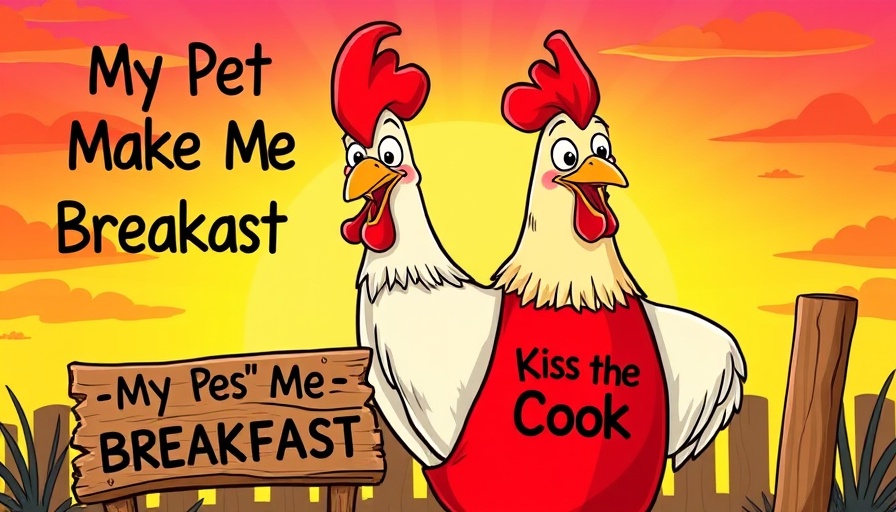
Understanding Your Duck's Behavior: Is It Depression or a Phase?
As an avian veterinarian, I often receive inquiries from pet owners trying to decode their bird's behaviors and emotional states. A recent discussion about a young duck exhibiting seemingly depressed behavior raises important questions not only about the psychological well-being of ducks but also about how we interpret animal behaviors during developmental phases.
The Teenage Phase in Ducks: What to Expect
Ducks, like many animals, go through various life stages, including a 'teenage' phase where hormonal changes can impact their behavior. During this time, you may observe mood swings, increased independence, or even mild aggression. While it can be alarming for owners, understanding these behavioral expressions can alleviate concerns. This phase often leads to a more mature and balanced adult after navigating through these changes.
Identifying Signs of Depression in Ducks
While teenage behavior can mimic signs of depression, it’s essential to recognize the actual symptoms of a depressed duck. Symptoms may include lethargy, decreased interest in socializing with other ducks, and changes in eating habits. In contrast, the exploratory nature typical of a duck in the adolescent stage often includes brief episodes of isolation due to curiosity rather than genuine distress.
Creating a Supportive Environment
Whether a duck is experiencing typical teenage behavior or signs of true depression, it is crucial to ensure a nurturing environment. Providing enriching activities, ensuring social interactions with other ducks, and maintaining a quality diet can all help in supporting your duck’s psychological health. If you notice persistent signs of depression, consulting with an avian veterinarian is recommended.
Conclusion: Monitoring and Support
Being a responsible duck owner means observing your pet's behaviors, understanding their needs, and adapting care when necessary. Whether your duck is navigating through a teenage phase or faces depressive tendencies, proactive engagement and veterinary support can make significant differences in their well-being.
 Add Row
Add Row  Add
Add 




Write A Comment